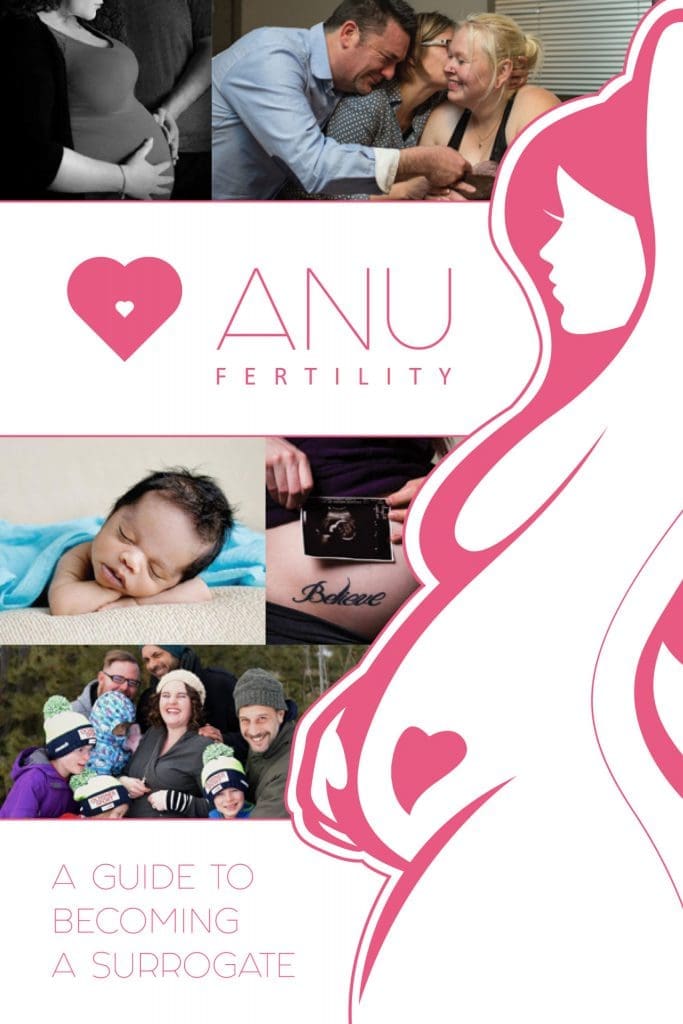Enter your Name & Cell Number
Your passcode will be sent via text message

"*" indicates required fields

“I want to share everything I know about being a Surrogate in Canada with you”
~ Lorraine Smith (Former Surrogate & Founder)
If you answered ‘yes’ to these 2 questions
then you’re already halfway there.

While surrogacy is absolutely legal in Canada, technically, we cannot pay either surrogates or donors directly for their help.
Both surrogates and donors do have, however, all of their related expenses reimbursed – things like food, clothing, transportation, communication, wellness, post-birth recovery and others.
For most first-time surrogates, the minimum is at least $45,000.
When basic requirements are met, we’ll book a phone interview.
This provides a great opportunity to ask questions, discuss fears, and hear about first-hand experiences.
How many times have you been pregnant?
Were your pregnancies healthy?
How was the delivery?
Were there complications?
Was it natural or C-section?
If C-section, what were the reasons?
What is your current health status? Are you on any medication? If so, what? What is the dosage, what is your BMI, blood pressure?
After an in-depth phone consultation, it’s time to start thinking about who you might pick to be your Intended Parent. We’ll provide you with a number of profiles that best suit your individual needs and match your values.
Studies show that a positive relationship between the Surrogate Mother and the Intended Parents has a direct impact on the success of the Surrogacy itself.
After your intake and screening are finished we’ll narrow down a list of Intended Parents so you can make a strong choice.
You’ll never be bullied or feel pressured to make a choice that isn’t right for you—our aim is to provide you with the best information to make an informed decision.
You’ll want to carry a child for a couple (or person) who matches your values. Choose someone who “makes your heart sing,” someone who checks all the right boxes:
Are you looking for LGBTQIA2S+ couple (or single)?
Perhaps an independent working woman?
Maybe it’s a couple that’s been unable to conceive naturally?
Once you have decided on the right fit for you, we’ll book a video conference call with you and the Parents. This is a magical moment—they’ll finally get to meet the person who’ll change their lives forever.
As a Surrogate, you’ll begin to observe a phenomenon we call—the rush to wait. The process of Surrogacy takes a little time.
Between visits to lawyers and clinics—it’s perfectly natural to get a little antsy.
RUSH – Get your profile completed.
WAIT – To find a good match
RUSH – Book a call with the Intended Parent. You’re anxious to meet them, we get it!
WAIT – More paperwork
RUSH – Off to the clinic for screening
WAIT – More appointments with counsellors and lawyers
It’s a big decision, so it’s important to take each step as it comes.
You’ll also be assigned a mentor once your profile is complete and they will walk with you through every step of the journey.
Surrogacy is split into two types: traditional and gestational.
A Surrogate Mother does not use her own eggs, meaning the Surrogate Mother is simply the carrier of a fertilized embryo(s) transferred via In Vitro Fertilization (IVF).
Gestational Surrogacy involves an Intended Mother (or an Egg Donor), an Intended Father (or a Sperm Donor) and a Gestational Surrogate.
Once a transfer is successful you’ll then carry and give birth to the child just like a normal pregnancy.
A Surrogate Mother uses her own eggs and is artificially inseminated with the sperm of the Intended Father or sperm donor.
NOTE: ANU Fertility does not provide any services related to Traditional Surrogacy
IVF is really the soul of Surrogacy.
It happens by retrieving a sperm sample and then manually combining an egg and sperm in a petri dish (there are no turkey basters involved). The embryo(s) is then transferred to the uterus and a regular pregnancy follows.
Pioneered in the UK in 1978, an estimated 5 million children have been born worldwide through IVF.
IVF really brings the best of humanity together—scientific progress, unconditional love, and parenthood.
Once the contract is signed, you’ll begin hormone treatment to prepare the body for IVF.
In essence, hormone treatment is like revving up the engine before hitting the road. Estrogen and Progesterone are used to trick the body into thinking it’s pregnant. Just like natural hormones, these drugs will make you feel, well, hormonal.
Once the body thinks it’s pregnant you’ll be ready for an ultrasound to check the lining of the uterus.
The hormones start one week before the lining check.
During the ultrasound, the lining of the uterus will be checked for optimal thickness and hormones will be prescribed.
Using high-frequency sound waves, the tech will get a clear image of your uterus to confirm it’s healthy enough for an embryo to live.
They usually want the lining around 8mm thick or greater, for the best chance of a successful transfer.
The most beautiful experience in your life may just be watching the embryo on a large screen where you can see each individual cell alive and ready to flourish.
Guests of honour will include: the embryologist, the doctor and the nurses. Of course, if you want, your support team (partner, best friend, etc.) and the Intended Parents are also allowed to be in the room during this incredible moment when magic and science collide into a baby-making party.
It’s a non-surgical procedure similar to a pap. You’ll be able to watch, through ultrasound, as the wand is inserted and the embryo is released to float and eventually nestle into the lining of your uterus.
Once the transfer is complete, and after a quick 30-minute rest, you’re free to go home.
When a fertilized egg attaches to the uterine wall, a vital hormone is generated. Following this, there is an anxious two-week period until your Beta Marker test can be measured with a simple blood lab draw.
There are two crucial blood draws during this time. The initial test occurs 12 to 14 days after the transfer, establishing a baseline number (preferably 100 or higher).
48 hours after the first test, another measurement is taken. If this number has doubled, you can breathe a sigh of relief; chances are the transfer was successful.
Once a successful transfer has occurred (after 2nd beta’s double or better), congratulations, you’re pregnant!
For the first 12 weeks of gestation, you’ll be required to stay on hormone treatment. This is what we call in the biz being “pregnant in stereo.” You’ll get weepy watching commercials, you’ll cry despite being terrifically happy.
By thickening the lining and increasing hormones estrogen and progesterone, you’re tricking the body into thinking it’s pregnant. The hormones work to maintain the lining after the transfer, and also help promote healthy embryo growth.
After the hormone treatment, it’s basically a regular pregnancy. You’ll get another ultrasound at 6 weeks, then all your care can be handled by your medical team (includes OB, family doctor, or midwife – with a support person like a doula optional).
Please note: there are two more ultrasounds after your Beta tests. One after week 6 and one after week 20.
You’re giving the Greatest Gift anyone can ever offer. You’ll cry, you’ll feel proud.
Because of you, someone’s dream will come true, we like to refer to you as, the honorary Auntie.
This is the true moment of magic—some Surrogates have confessed that it was more joyful for them than the birth of their own children.
Since you’ve already given birth, Surrogacy delivery isn’t all that different.
Once you’ve given birth you’ll finally get to sleep again!
Obviously, you’ll need to recover, but you can recover knowing that you have brought true joy into the world.
As with other pregnancies, you might feel down for a few days as the hormones leave your body—this is totally normal.
You’ll also work out in advance what the plan for feeding the baby is. Some surrogates pump breastmilk for awhile (depending on everyone’s wishes and the practical considerations of distance) and some go on to pump for a milk bank in their own community.
Often IP’s live in a different city, so pumped milk needs to be mailed special delivery.
All of this is a personal choice and something that you can work out with your IPs as your relationship develops and how you feel.
It is 100% your choice to do it—no pressure.
Supportive family and friends are a huge plus for the success of your Surrogacy. Often a partner, spouse or husband will be along for the ride.
If your partner is a man, he usually wants to know a few things such as: how much does it cost? What do we have to pay for? Is it our genetics? Are we responsible for this child?
Intended Parents are responsible for all your Surrogacy related expenses. After the Surrogacy agreement finalizes, that money is paid upfront and held in trust by ANU. So, “worry not dear, it won’t cost you a penny.”
Since ANU doesn’t work with Traditional Surrogacy, the answer to the second question is an emphatic NO. The baby will possess none of Surrogates genetic material since the Eggs, and the Embryo come from elsewhere.
And the third question, are we responsible? No, you are not responsible.
Writing up a contract regarding babies can seem, upon first glance, like an unsavoury task. The fact is, it is necessary to ensure the security of everyone involved.
Unless you have a preference, we can refer you to an experienced Surrogate friendly lawyer. This is the easiest way to manage expectations throughout your Surrogacy—think of the contract as a map that will outline the journey ahead.
It goes without saying that you can’t do this alone and we encourage active participation of your spouse/partner.
We also offer a surrogate mentorship program so you have 24/7 (only emergency calls after 6pm) support throughout the entire process.
With ANU mentorship you’ll have access to a strong support system of women that have all been surrogates and know exactly what you are going through.
In the event of Gestational Surrogacy, the answer is no. At the beginning of the process, everyone signs a Declaration of Parentage which states that the Intended Parents are indeed the parents.
Lawyers take the birth registry from the hospital, file for the birth certificate, and make sure the IPs names are on the birth certificate from the start (varies from province to province). The lawyer will take care of these steps.
The answer is no – however, in the very unlikely event that the IP’s don’t take their child, the lawyers would step in and the child would immediately be placed in a loving home.
There is a massive waiting list for adoption in Canada.
It’s important to emphasize that the child will NOT be abandoned and you will not be overburdened with a responsibility you’re not prepared for.
In the event that the IPs are from another country, the child goes home with a Canadian birth certificate and a Canadian passport. It is the responsibility of the IP to apply for citizenship of the child in their home country.
This will be discussed from the onset and we make sure everyone is on the same page.
Realistically no one can make you, but if you refuse an abortion after you agree to it in the contract, then the contract is broken and reimbursements stop.
You will never be pressured into doing something you don’t feel comfortable doing, but it’s important to set expectations at the outset for all those involved.
Everyone comes to Surrogacy on their own volition. In Canada, women are not compensated for this act of kindness.
Countries such as India and Mexico have been cracking down in recent years by banning foreign Intended Parents.
Our system is very careful that we don’t take advantage of women throughout the process.
At the heart of Surrogacy exists a medical marvel—IVF. Science cures all kinds of problems, infertility is one of them.
Often these positions are best approached with empathy and education.
In the immortal words of Selena Gomez, the heart wants what it wants. You never have to justify the reason for wanting to help someone.
Your passcode will be sent via text message